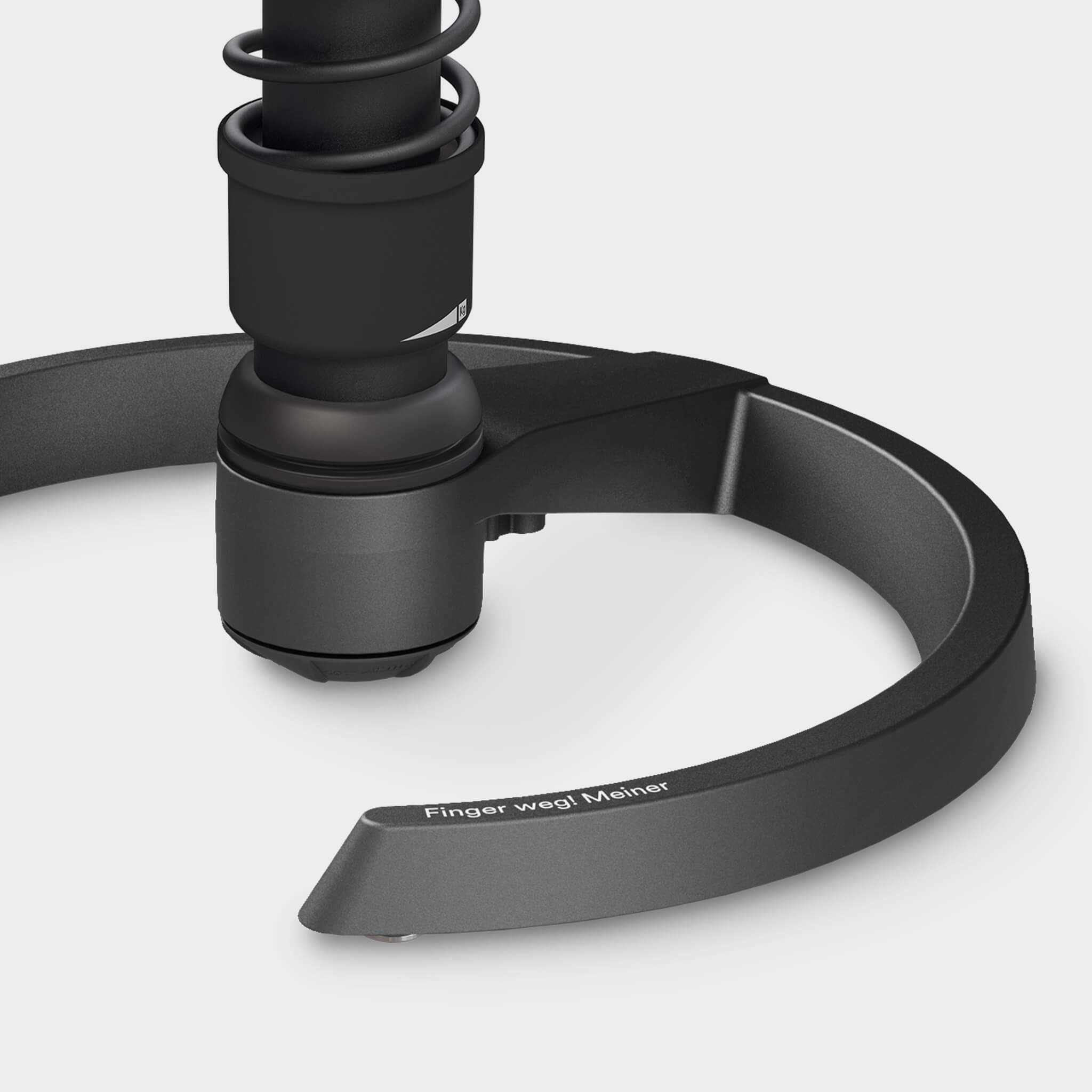Die Aeris Swopper Studie
Im Rahmen einer wissenschaftlichen Studie zur Arbeits- und Bewegungssituation am Büroarbeitsplatz hat die Forschungsgruppe Arbeitssoziologie und Technikgestaltung, FGAT, der Fachhochschule Hamburg unter Leitung von Professor Dr. Detlef Krüger nach mindestens 4-wöchiger swopper-Nutzung in Unternehmen und Betrieben mehr als 1000 Stellungsnahmen per Fragebögen erfasst und ausgewertet. Das eindeutige Fazit daraus: Der Aeris Swopper beugt erfolgreich Rückenschmerzen vor!
Ergebnisse der Auswertung
- 91 Prozent der Befragten arbeiteten mehr als 2 Stunden pro Tag am Bildschirm, fast 40 Prozent sogar mehr als 6 Stunden.
- Die körperliche Belastung durch das viele Sitzen am Arbeitsplatz empfanden knapp 50 Prozent als stark bis sehr stark.
- Weit über 80 Prozent der Probanden hatten bereits Beschwerden des Bewegungsapparates oder Muskelverspannungen: Rückenschmerzen, Nackenschmerzen, Schulterschmerzen und Beschwerden im Arm.
- Rund 90 Prozent der Pilotprojekt-Teilnehmer sah einen deutlichen Zusammenhang zwischen der sitzenden Beschäftigung und den Beschwerden.
- Fast 60 Prozent der Probanden nutzten den Aeris Swopper mehr als vier Stunden am Tag, 22 Prozent saßen zwei bis vier Stunden und rund 18 Prozent saßen bis zu zwei Stunden auf dem für sie neuen aktiv-dynamischen Sitz-Element.
- Als größte Vorteile gaben fast 90 Prozent den stetigen Belastungswechsel auf dem Aeris Swopper an, fast 40 Prozent stellten eine höhere Leistungsfähigkeit fest und von 35 Prozent wurde die größere Bewegungsfreiheit auf diesem Büro-Möbel hervorgehoben.
- Auf die Frage „Haben sich durch den Einsatz vom Aeris Swopper Ihre Beschwerden bzw. Ihr körperliches Wohlbefinden verbessert?“ antwortete eine deutliche Mehrheit von fast 2/3 aller Befragten mit „Ja", „Ja deutlich" oder „Ja, sehr stark".
Würdigung der Umfrage-Ergebnisse:
Prof. Krüger: „Dieses Ergebnis muss als überaus bemerkenswert betrachtet werden, wenn man berücksichtigt, dass nichts anderes gemacht worden ist, als „nur“ neu zu sitzen! Keine Medikamente, keine Operation, keine Bestrahlung, keine Massagen, keine Spezial-Gymnastik oder ähnliches. Allein das neuartige Sitzen auf dem Aeris Swopper hat der überwiegenden Mehrheit der Befragten spürbare Verbesserungen gebracht."
Der Zusammenhang zwischen „Sitzen in Bewegung“ und „Gesundheit und Wohlbefinden" wurde auch durch diese Studie dokumentiert. Swoppen hält damit nicht nur den Rücken, sondern den ganzen Menschen fit und gesund.
Die Ergebnisse dieser Studie unterstützen das, was unter anderem die Medizinische Hochschule Hannover in Zusammenarbeit mit der AOK Niedersachsen herausgefunden hat: Präventive Maßnahmen bringen bei der Volkskrankheit Rückenschmerzen gesundheitlichen und wirtschaftlichen Nutzen. Das heißt: Gezielte Vorbeugung ist effektiver und kostensparender als viele aufwendige Heilmethoden.
